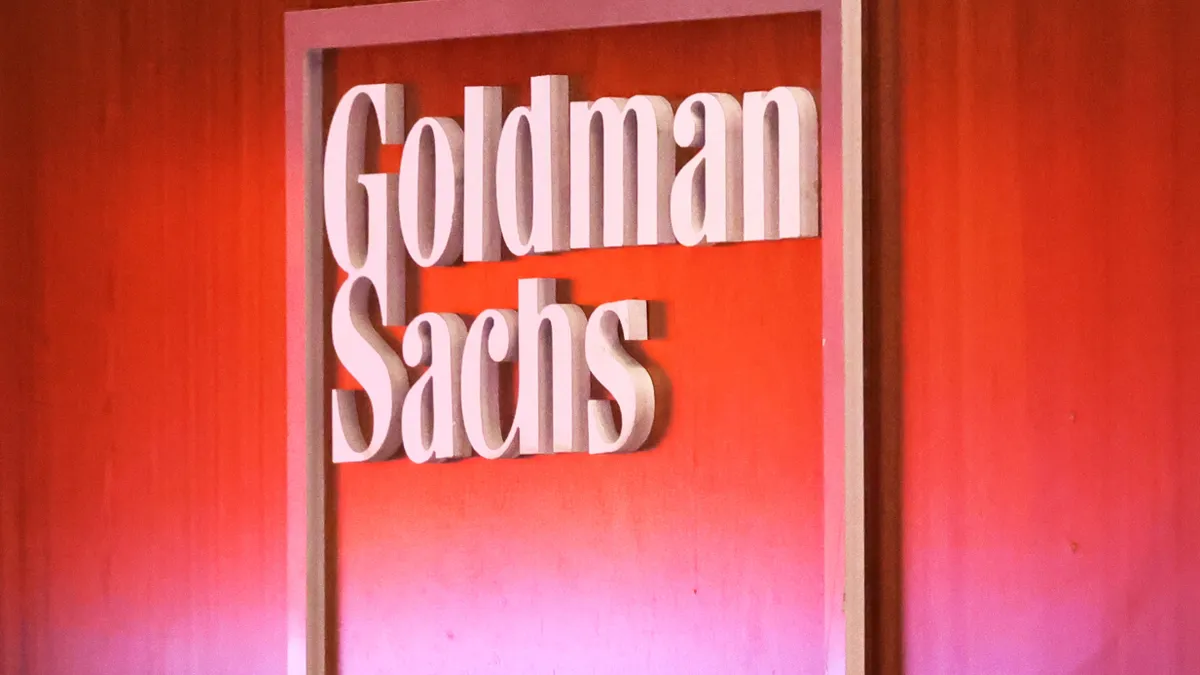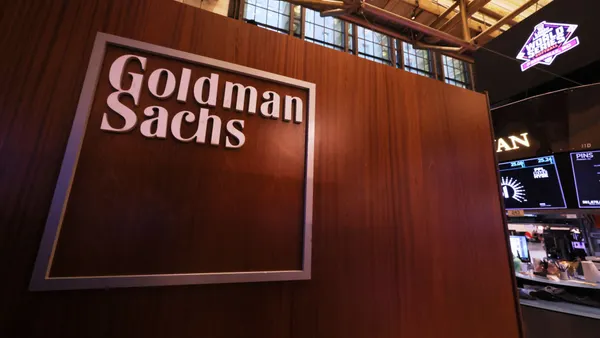Goldman Sachs plans to cut hundreds of jobs across its consumer business division, and will stop making personal loans through its retail-banking platform, Marcus, Bloomberg and the Financial Times reported Monday, citing sources with knowledge of the matter.
The cuts could eliminate as many as 400 jobs, Bloomberg reported, and come as Goldman CEO David Solomon attempts to scale back the investment bank’s consumer-banking ambitions.
A bank spokesperson declined Banking Dive’s request for comment.
The reports follow the Goldman’s restructuring announcement in October that entailed splitting Marcus into two groups.
The bank has also signaled, as early as July, that it would reinstate annual performance reviews, which may guide individual headcount-reduction decisions.
Under the proposed reorganization, Marcus’ consumer-focused operations will fall under Goldman’s asset- and wealth-management unit, while a subset of Marcus business that deals with corporate clients will become a stand-alone entity called Platform Solutions, the bank said.
Personal loans were one of the first products the bank offered through Marcus, the digital banking platform it launched to serve the consumer market in 2016.
Despite surpassing $100 billion in deposit balances in September 2021, Marcus is burning through cash, forcing the bank’s executives to contend with mounting losses and growing discontent over the performance of the consumer-geared platform.
Goldman’s own internal forecast estimated Marcus could post a record loss of more than $1.2 billion, and executives have been pressured to rein in costs, Bloomberg reported in September.
Meanwhile, analysts have projected profits at the investment bank will drop more than 40% from last year’s record.
"We continue to see headwinds on our expense lines, particularly in the near term," Solomon said at a conference last week, according to Bloomberg. "We've set in motion certain expense mitigation plans, but it will take some time to realize the benefits. Ultimately, we will remain nimble and we will size the firm to reflect the opportunity set."
Goldman has faced steep competition in the retail-banking market, said Richard Gardner, CEO of fintech firm Modulus Global, which has built technology for some of the nation’s largest banks, including Goldman.
“Goldman’s a company that’s achieved incredible success in its own right, and it tried to parlay that success into a market where it doesn’t enjoy the same kinds of core competencies,” he said.
Amid the growth and popularity of digital retail banking and payments players such as Chime and CashApp, Gardner said Marcus has “failed to break through the noise.”
“There’s been a number of hurdles that Goldman has tripped over in this new venture, and folding Marcus into its asset and wealth management unit is definitely a sign of a major pullback,” he said. “The big lesson here? Compete in areas where your core competencies shine.”
High customer acquisition costs associated with growing Marcus’ user numbers likely factored into the firm’s decision to pare back its retail ambitions and embrace its Apple partnership, said David Donovan, executive vice president of financial services for the Americas at digital consulting company Publicis Sapient.
Amid Goldman’s internal reorganization, the bank is deepening its relationship with the tech giant.
Apple announced in October that Apple Card holders will have the ability to deposit cash into a Goldman high-yield savings account, a feature expected to roll out in the coming months.
The move to expand its white-label service with Apple represents Goldman’s recognition that the tech firm is simply better at customer acquisition, said Donovan, whose company worked to build Marcus.
“Customer acquisition is significant,” he said. “They felt like they were spending a lot of money to acquire customers and they felt like it was better to partner with somebody who acquires customers a lot more seamlessly.”
Meanwhile, Goldman’s consumer products are under regulatory scrutiny from the Federal Reserve and the Consumer Financial Protection Bureau (CFPB).
The Federal Reserve is investigating losses in the bank’s Marcus unit, according to Bloomberg, and the CFPB is looking into the bank’s credit card account management practices.














